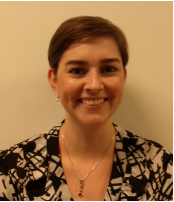Where are they now?
|
More AlumniKathryn BerlinAndres E. Carrillo Aleda Chen Krista Cline Katie Hill Gallant Megan Gilligan Kimberly Hurley Heidi IglayReger Jessica Kelley Seoyoun Kim Min-Ah Lee Mary Marshall Megan MacPherson Lauren Parker Lindsay Pitzer Markus Schafer Jori Sechrist Amber Seidel Tetyana P. Shippee John Spruill III April J. Stull Anusha Sundarrajan Roland J. Thorpe Kyle Timmerman Nicholas Turiano Lori Ward Oliver Wendt Lindsay Wilkinson Tim Wright |
Jori Sechrist, PhDJori Sechrist earned the PhD in sociology with a minor in gerontology from Purdue during 2008. In 2011, she joined the faculty of University of Texas-Pan American as assistant professor of sociology. Dr. Sechrist’s primary areas of research and teaching are the sociology of aging and the sociology of family. She is an expert in the study of family relationships through adulthood including parent—adult-child relationships, grandparent-grandchild relationships, and in-law relationships, with an emphasis on race and ethnic differences in relationship processes. How did you get interested in the study of aging?I became interested in the study of aging in the first few years of my graduate studies at Purdue. Early in graduate school, I took a few courses dealing with aging and health. One course in particular, on minority health, sparked my interest in health and aging in general and race and ethnic differences in the aging process. Who were your Purdue mentors and how did they help you succeed?In the summer of my first year of graduate school, I began working as a research assistant for Dr. Ken Ferraro. For several years, I was fortunate to be able to work in his research group where I learned a great deal about aging and health issues from him and the other students in this group. During this time, I was a part of several projects where I helped develop surveys, mediate focus groups, manage data, and conduct data analyses. Under his guidance, I developed as a researcher and my interest in aging, particularly in the family setting, grew. I had become very interested in the parent-adult child relationship and the social support exchanged between parents and their adult children. So, I was very fortunate when Purdue hired Dr. Jill Suitor who was (and is) an expert in the study of parent-adult child relationships. Luckily, she was in need of a research assistant and I began working with her in 2005. I worked on her Within-Family Differences Study as a member of her research group for the next 6 years where I transcribed and coded qualitative data, learned and practiced complex statistical analyses for within-family data, and experienced the grant writing process from development of the grant proposal through funding of the project. In working with Dr. Suitor, I gained invaluable knowledge and skills in research, writing, mentoring, and professional development. These research experiences in the Ferraro and Suitor labs helped me develop and strengthen my research skills, but also gave me important insight into multiple research methods that I now use as examples in the classroom as well. I was extremely fortunate to be able to work with Professors Ferraro and Suitor as they are two of the most outstanding scholars and mentors.What other experiences did you have at Purdue that helped form your current career?There are so many things that I was able to do and learn by being a part of CALC; it is difficult to choose which experiences were most helpful or noteworthy. A great deal of being a part of CALC centered on my development as a scholar. Through the course work and other activities, I learned the knowledge and skills needed to do research in the area of aging. But being a part of CALC provided even more than just the development of skills and knowledge. One of the most unique experiences I believe CALC offered was the opportunity to go into the community to connect with and serve older adults. One of my favorite experiences as a CALC student was going to Westminster Village to participate in an internet tutorial for the residents. Another rewarding experience was working with a group of older adults in a writing club to help them put together a book of their writings. Working with these individuals one-on-one helped me gain a whole new perspective on aging. What do you remember best about your affiliation with the Center on Aging and the Life Course?My affiliation with CALC also helped me to connect with many prominent scholars in the study of aging. CALC has a powerhouse of faculty associates who provide expertise in many areas. They also attract wonderful students with whom I studied and developed strong relationships. Because of the interdisciplinary emphasis of CALC, I now have ties to excellent scholars all over the country not just in sociology, but across a variety of disciplines. The faculty associates and other students helped me and encouraged me throughout my career at Purdue; and they continue to offer their expertise, mentorship and friendship. |
